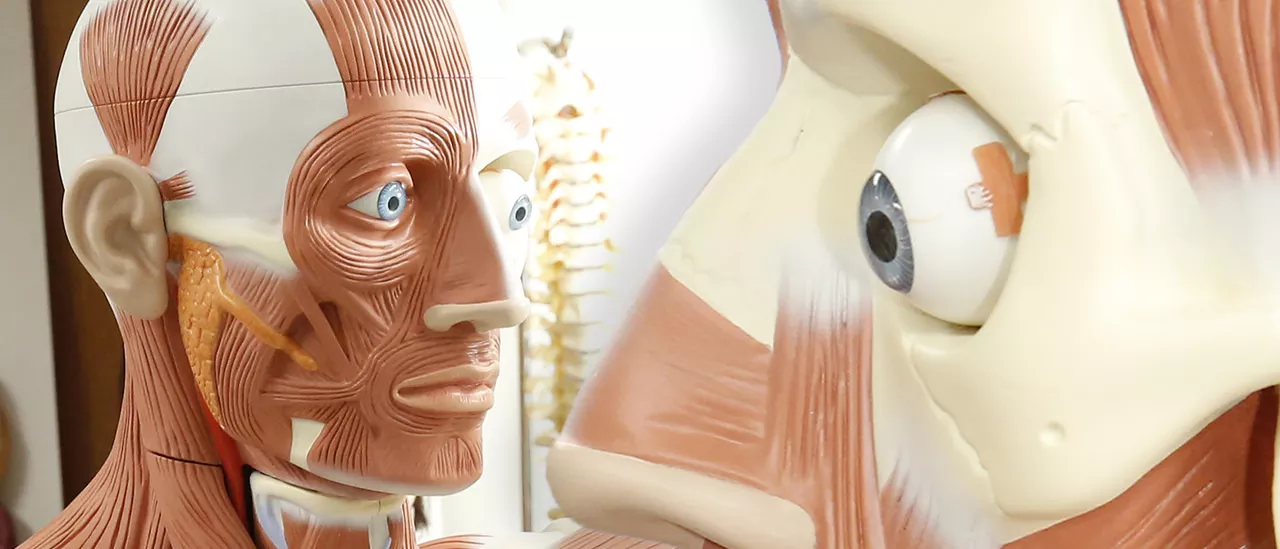SUNY Oneonta's Office of Health Careers provides specialized guidance and support for students preparing to apply to optometry school to be a Doctor of Optometry (OD).
Joint Degree Program
Highly qualified SUNY Oneonta applicants and students have the opportunity to apply to SUNY College of Optometry via the 3+4 Joint Degree Program. Additional information, including qualifying criteria, can be found on our Health Professional School Articulation Webpage.
What is Optometry?
"Optometry is the field involving virtually everything that has to do with eyes and vision, including examination, diagnosis and treatment of the eyes and surrounding structures, and the treatment of vision problems.
Doctors of Optometry (ODs) are the independent primary health care professionals for the eye. Optometrists examine, diagnose, treat, and manage diseases, injuries, and disorders of the visual system, the eye, and associated structures as well as identify related systemic conditions affecting the eye (American Optometric Association [AOA]).
They should not be confused with ophthalmologists or dispensing opticians. Ophthalmologists are physicians who perform eye surgery, in addition to diagnosing and treating eye conditions. Dispensing opticians fit eyeglasses and contact lenses, following prescriptions written by ophthalmologists or optometrists.”
- ExploreHealthCareers.org
Learn More
For additional information regarding optometry programs, visit optometriceducation.org.
Acceptance Rate
56% of SUNY Oneonta applicants were accepted into Optometry programs.
(2021-2024 Advisor Report)
SUNY Oneonta students have recently attended the following Optometry programs: MCPHS University School of Optometry, New England College of Optometry, NOVA Southeastern University College of Optometry, Salus University Pennsylvania College of Optometry, State University of New York State College of Optometry.
Prerequisite Courses & Electives
Students must consult SUNY Oneonta's current undergraduate catalog for course descriptions, prerequisites, and time of year when courses are offered to plan properly in advance.
Prerequisites for Optometry School:
- BIOL 1001: Investigative Biology Laboratory
- BIOL 1002: Cellular Perspectives in Biology
- BIOL 1004: Organismal Perspectives in Biology (Preferred) or BIOL 1006: Ecological and Evolutionary Perspectives in Biology
- BIOL 2000: Cell & Molecular Biology
- BIOL 3106: Microbiology
- BIOL 3202: Human Anatomy & Physiology I
- CHEM 1111: General Chemistry I
- CHEM 1121: General Chemistry II
- CHEM 2212: Organic Chemistry I or CHEM 2262: Essential Organic Chemistry
- CHEM 3302: General Biochemistry
- COMP 1000: Composition
- One Literature Course (ALIT, ELIT, LITR, WLIT)
- MATH 1050: Pre-Calculus
- MATH 2230: Calculus I
- Physics Sequence (choose 1 set of courses from below)
- PHYS 1030 & PHYS 1040 (General Physics I & II - Non-Calculus)
- PHYS 2030 & PHYS 2040 (General Physics I & II - Calculus-based)
- PSYC 1000: Introduction to Psychology
- STAT 1010: Introduction to Statistics
A minimum grade of C or higher is typically required in each prerequisite course, however grades of B or higher are recommended. Though a strong application includes a prerequisite and overall GPA greater than 3.4, programs are seeking applicants that are well-rounded in educational and life experience and can articulate an understanding of the career and vision for themselves in the Profession.
Optometry education programs may change course prerequisites at any time and may have additional requirements, preferences, or policies that are not reflected in this course list or on the ASCO Prerequisite course list. Programs may also allow applicants to substitute courses or choose different prerequisite courses. Applicants should review the program-specific details and contact programs directly to determine whether a particular course will fulfill a prerequisite.
Calculus-Based Physics is required at several Optometry Schools, including MCPHS, while many, including SUNY Optometry will accept algebra-based Physics or calculus-based Physics. Students should take this into consideration as they plan their prerequisite coursework and review prospective grad schools for Optometry.
Students have the responsibility to check entrance requirements for schools to which they intend to apply.
Optometry Program Requirements
Students should regularly review the Optometry School Admission Requirements and the ASCO Resources for Applicants and ASCO's 15 Tips for Applying to Optometry School.
Applicants are evaluated on:
- competencies for optometry school
- letters of evaluation (committee letter preferred)
- leadership skills (on and off campus)
- GPA (BCPM & Overall)
- Optometry Admission Test (OAT & FAQs)
- healthcare experience (clinical & observational)
Application Timeline
Application to optometry school is made via the centralized application OptomCas.
- The OptomCas Application Cycle opens annually in late June for programs starting the following year.
- Applicant Guides are available from ASCO
Letters of Evaluation
Many optometry schools require two letters of evaluation, one from an Optometrist and one from a Science Professor.
Some optometry schools recommend or require a Health Professions Advisory Committee (HPAC) letter in addition to the optometrist and professor evaluations; SUNY College of Optometry requires a composite letter, which necessitates full letters of evaluation from an Optometrist and Science Professor be included with the HPAC letter; therefore all Pre-Optometry Students applying for an HPAC interview must request full letters of evaluation from their evaluators to be submitted as part of the HPAC interview process.
Questions regarding HPAC should be directed to the HPAC Chair.
